Growing up in war
Ariel Rojas had never seen or heard of airplanes — until they started dropping bombs on his childhood town. Explosions surrounded him. Shots ring out throughout his neighborhood, and people scramble for shelter. By nightfall, he’s hiding under a mattress, praying no one he knew was killed. He huddles with his grandmother and cousin, waiting for the chaos to pass.
This chaos was the Nicaraguan Revolution. For almost half a century, the Somoza regime ruled Nicaragua with an iron fist. But in 1979, it faced its reckoning: The socialist Sandinistas, after decades of guerilla conflict, escalated their fight to an open war that finally overthrew the dictatorship.
As a 12-year-old boy, Rojas believed that the revolution would bring freedom. This illusion was quickly shattered.
“We thought we finally were going to become democratic, and people would have their civil rights,” Rojas said. “When the Sandinistas came into power, we were led to think that we would be free, but instead, it became a repressive socialist regime with its own types of persecution.”
When the war broke out, Rojas fled to his godfather’s ranch in the mountains — a three-day trek on foot. Along with his grandmother, and about a hundred people, Rojas hid for three months.
After the Sandinistas became the provisional government and open conflict ceased, Rojas returned to his town with his family. Within months, rationing began. You could no longer buy food without a card that indicated your household size.
Rationing was due to the Contras, anti-communist rebels with U.S. and CIA backing. They waged a brutal guerilla war against the Sandinistas for more than a decade, killing more than 30,000 people. To fight the Contras, the regime started conscription. Some of Rojas’ siblings fled the country, but too young to be drafted, he stayed.
But not for long. A few years in, the regime started drafting 15 and 16-year-olds.
“That was my age,” Rojas said. “My father decided to get me out of Nicaragua. We wouldn’t return. I started seeing friends of mine coming back dead from the war, just weeks after they were drafted. I went to a bunch of funerals.”
In the middle of the night, 16-year-old Rojas was woken up by his father.
“My dad took me to the airport and said, ‘You’re going to Mexico,’” Rojas said. “He gave me a hundred dollars and put me in a plane. I’d never left the country before.”
He was given his mom’s friend’s address, and was told that his siblings would help him once he got to the U.S. Besides that, he was left on his own.
Making it to the United States
Mexico City, Mexico, 1981
Rojas sits in the Mexico City immigration office, facing deportation. The immigration official says they will send him back to Nicaragua, today. But he remembers what his mom told him about her travels to Mexico.
The police take bribes.
“I took courage, got up, and told the immigration guy, ‘I’ll give you 40 if you let me go,’” Rojas said. “The guy looked at me and said, ‘Let me go talk to my boss.’ He went, talked to his boss, and came back. He said, ‘Put 40 in your passport.’ I gave him the 40 and he let me out.”
Rojas left the immigration office, down almost half of the money his dad gave him. He then waited for his mom’s friend to pick him up.
“They never came,” Rojas said. “I was left in Mexico City at 5 p.m. and had nowhere to go. Luckily, some ladies I met on the plane had waited for me.”
Seeing that he was young and alone, the women gave Rojas a ride and a temporary stay at their dorm at the National Autonomous University of Mexico.
Chilpancingo, Mexico.
Rojas arrives at his friend’s house, where he sells chickens on a farm. With him are eight other boys he knew from Nicaragua, who also fled the draft. He’d stay there for three months.
“I didn’t have anything to look forward to,” Rojas said. “When the owner couldn’t take care of us that much, I started thinking about a plan to leave.”
Rojas called his older siblings in the U.S. to see if he could stay with them instead, but they told him they weren’t in a great spot to help him out. Finally, one of his brothers offered him a hundred dollars, and his cousin from Houston offered him a place to stay. The only catch? He had to make it across the U.S.-Mexico border on his own.
“I’ve always been a very friendly person, so my friends in the neighborhood started to help me out,” Rojas said. “They taught me how to sing the Mexican anthem, because becoming Mexican was the safest thing to do — I thought.”
After doing his research, Rojas believed that crossing the Mexican border by train would be his safest bet. So, he gathered most of his money to buy a train ticket to Texas in the most expensive class.
“I thought that if you travel with the rich people, immigration wouldn’t catch you,” Rojas said. “It was between me having money to eat, or paying for the most expensive train, so I spent about five days without food.”
Mexican Immigration did search the train that Rojas was on, but only detained people from the less expensive wagons — his plan worked.
Nuevo Laredo, Mexico.
With 20 dollars left in his pocket, Rojas pays for one night at a hotel in Nuevo Laredo right on the Rio Grande, bordering the smaller city of Laredo, T.X. He left a message for his cousin about the name of the hotel. The morning after he arrived, Rojas calls his cousin again to figure out his next steps.
She never picks up the phone, and he ran out of money to call again.
As he prepares to leave his room, he hears knocking at the door.
“I was terrified,” Rojas said. “I thought it was Mexican immigration. I open the door, I see these two tall men standing there. They told me my cousins sent them.”
It had been five days since Rojas last ate. The men picked up Rojas and brought him to their house in Nuevo Laredo, where he spent a month and a half with other migrants.
“We kept trying to cross the border, but every time we tried, the river was full,” Rojas said. “We did that for several weeks, but eventually we were actually able to cross.”
This crossing wasn’t without its perils.
“You have to hold your hands above your head because the middle of the river has a strong current,” Rojas said. “I was crossing the river when the current took me. Luckily, I had learned how to swim and I was able to get myself out of that situation. Everyone told me that it was a miracle.”
Laredo, Texas.
After five days and four nights of hiding, Rojas makes it to a tiny ranch in Texas. There, he waits for his cousin to pick him up.
“While we were waiting, they made us work,” Rojas said. “It was hard because I was very skinny and they made us carry rocks for a construction project.”
A few days later, his cousin picked him up to go to Houston.
Houston, Texas.
“When I got to Houston, I weighed around 110 pounds,” Rojas said. “But when I got there, I only had one thing in my mind: I’m going to go to school, I’m going to work, and I’m going to move forward.”
So he asked his younger nephew how to get a job.
“His dad collected cans and sold them for money,” Rojas said. “So the next morning, I took some garbage bags and dug through the garbage bins of the neighborhood. I collected enough to buy myself a bike and my PE clothes, and then I started going to school.”
The war lost Rojas years of schooling, and as he was getting older and needed a job, he felt an urgency. He knew some English from his time in Nicaragua, but he could only string together a few words. At 16, he enrolled in ninth grade at Waltrip Senior High School.
“I met somebody who owned a McDonald’s, so I found a job there and became a busboy,” Rojas said. “But they closed the restaurant within a year, so I lost my job. It was devastating because I had no papers.”
Without the necessary documents, it would be difficult for Rojas to find another job to sustain himself. Even though his cousin helped him, she was also going through a rough patch and needed to care for her own family.
“I had no idea that all I had to do was walk into immigration and say, ‘I’m a Nicaraguan refugee and I’m 16’ and they would help me,” Rojas said. “Instead, I was hiding from them.”
Rojas knew that he couldn’t continue school without a job. So he walked into another McDonald’s and tried his luck.
“This wonderful lady liked me and gave me a job, and her son became my best friend,” Rojas said. “Within a few months, they were like dropping me off in their Mercedes at school. They became my family. I spent Christmas with them, and it was really wonderful.”
However, the family moved to Detroit and sold the McDonald’s. Without a place to go, Rojas was once again lost.
“I decided to move to Miami then, as my aunt lived there,” Rojas said.
Miami, Florida.
Rojas spent his junior and senior years at Miami Senior High School. He encouraged his little cousin who also came from Nicaragua to join him.
“We started on the same day,” Rojas said. “Both of us didn’t speak any English, and we got insulted by these guys in a truck.”
At school, however, Rojas had a good experience.
“My two best friends were white guys who didn’t speak Spanish,” Rojas said. “I have no idea how we were talking.”
“Nicaraguans were the target of a lot of racism, even from the Latino community,” Rojas said. “Because our skin was darker, they called us indios, and that was an insult. I’ve always had an accent too, and even my friends would make fun of me.”
Rojas expected to graduate, but he learned that he didn’t have enough credits.
“When I went to pick up my diploma, they said that I needed 10 more credits,” Rojas said. “At that point, life had just become really hard. I had to work two, three jobs through high school.”
Even though Rojas enrolled into community college at Lipsy Hopkins Technical College, he became occupied by work. He was never able to graduate and get his diploma.
“I was working in the restaurant industry,” Rojas said. “I went from cleaning tables, to bartending, to managing really quickly. I had so much experience that college became less important.”
Rojas’ status also became less important.
“I met so many people that I just became a part of Miami culture,” Rojas said. “It wasn’t in my mind anymore until reality hit, we had to close the restaurant, and I had to look for a job again.”
Rojas then realized that he wanted to continue pursuing a college degree. Rojas had always dreamed of becoming an actor, so after the restaurant closed, he drove to Los Angeles.
“My life was empty because I had not finished college and I was not going for the career that I really loved,” Rojas said. “I had a little Miata and $200 in my pocket, because I had not been able to save money.”
With a couple of suitcases, Rojas drove across the country — without papers. Even though he’d petitioned for political asylum, he was denied because he didn’t know how to file the paperwork.
“I did what I always do: ‘If you’re gonna walk into the mud, dress up — you might be able to come out alive,’” Rojas said. “I put my golf clubs in my little car. Because why would they ask a guy who’s driving a Miata convertible with clubs in the back for papers?”
This strategy was tested — a cop pulled him over as he was driven through Texas.
“They asked me to open my trunk, and as soon as I opened it, the first thing they saw was my clubs,” Rojas said. “Then they said, ‘Have a good day, Mr. Rojas.”
On his way to Los Angeles, Rojas stopped in San Jose. There, his road trip ended early.
“I met somebody wonderful who understood my story,” Rojas said. “I don’t think that I wanted to become an actor bad enough, because I got comfortable once I met my wife.”
Rojas also ended up getting his papers. The Nicaraguan Adjustment and Central American Relief Act (NACARA), is a U.S. law that provided immigration reliefs for certain Nicaraguansgroups that meet requirements — such as those who applied for asylum during a particular time frame. Through NACARA, Rojas legalized his status and built a life in the U.S. without barriers.
Journey to California
Watsonville, California.
After getting married and landing a job, Rojas returned to community college in Watsonville. This time, things were different.
“Even though it was in my heart to go to school, I worked in the kitchen until 1 a.m. every day,” Rojas said. “If I didn’t, who was going to pay my rent and buy me food? So I got to school sleepy all the time, and I ended up failing every single class. But then when I went back to community college, it was redemption time.”
Rojas’ wife was a big supporter during this time.
“I had the number one thing that a human being needs: Someone who can help you grow,” Rojas said. “She encouraged me to go back to school.”
Rojas attended community college classes during the day, and worked the night managing a local Chili’s. It was then that he got his first 4.0 GPA.
Continuing to pursue a higher education, Rojas went to the California State University Monterey Bay to get a bachelor’s degree in global studies. He then went to San Jose State University and got a master’s in education and counseling. Finally, he became a licensed administrator at National University.
Los Altos, California.
Rojas then applied for local high school counseling jobs, inspired by his friend who was a counselor. Originally, he only filled a temporary role at Los Altos High School, but now he has been working here for 14 years.
Having navigated the immigrant experience himself, Rojas’ background informs everything he does at school.
“There are so many things that I feel for immigrants and people who are trying to make it in the world,” Rojas said. “The worst thing about being an immigrant is that many people look at us and put us all in the same place. But, none of us are in the same position.”
Seeing the recent ICE raids and changes in immigration policy, Rojas empathizes with students affected.
“I’m pretty devastated by the state of our immigration when I see the kids here, and I know how they’re feeling because I was one of them,” Rojas said. “Being an immigrant is hard because people don’t stop and think about how hard somebody’s life could be.”
Since arriving at LAHS, Rojas has worked closely with the Latino Outreach Organization and served as the adviser for the Latino Student Union.
“It’s my obligation to stand up for the Latino community,” Rojas said. “To stand up for students who have gotten into trouble, to be there for people because people were there for me.”
Still, Rojas emphasizes that his role isn’t limited to working with Latino or immigrant students.
“I want to work with all students,” Rojas said. “My journey is not just about being a Latino person, or just about being an immigrant. It’s about family, war, government, displacement, country, and I can find all of that in the diverse body of the students here.”
And it’s those students, with their own unique stories and identities, who continue to inspire him.
“My goal is to encourage and empower students to be the best version of themselves, to do the things that are set for them,” Rojas said. “To open their eyes to opportunities, to voice their concerns, and to make sure that they’re not alone.”




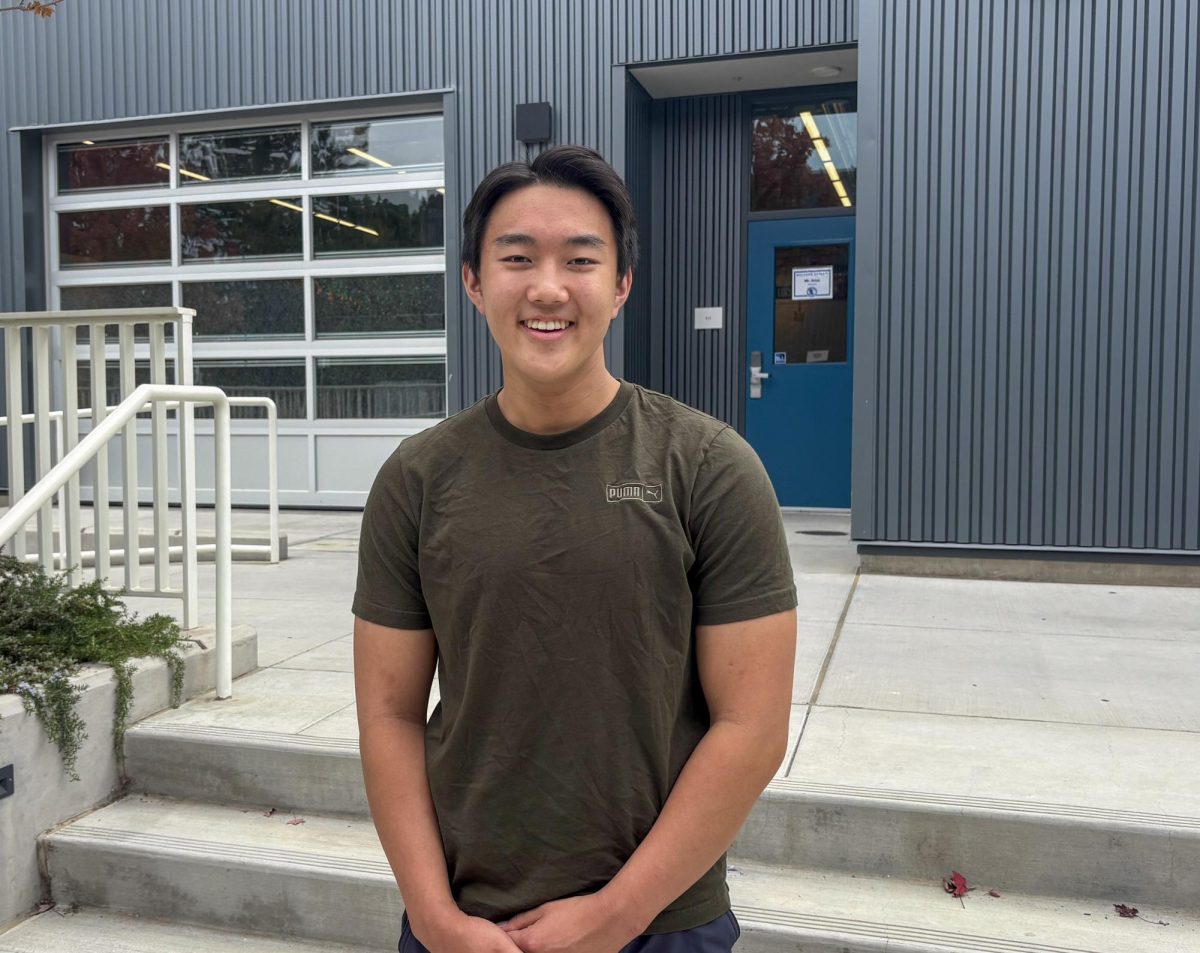
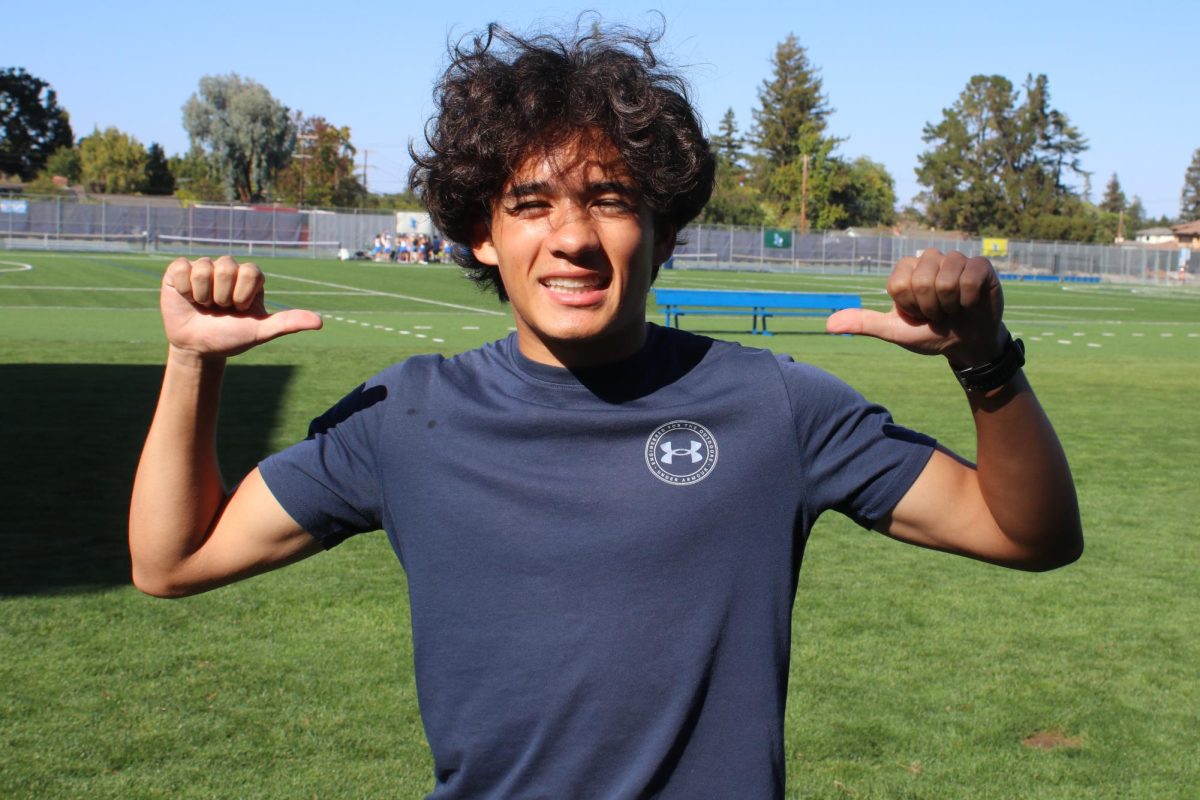
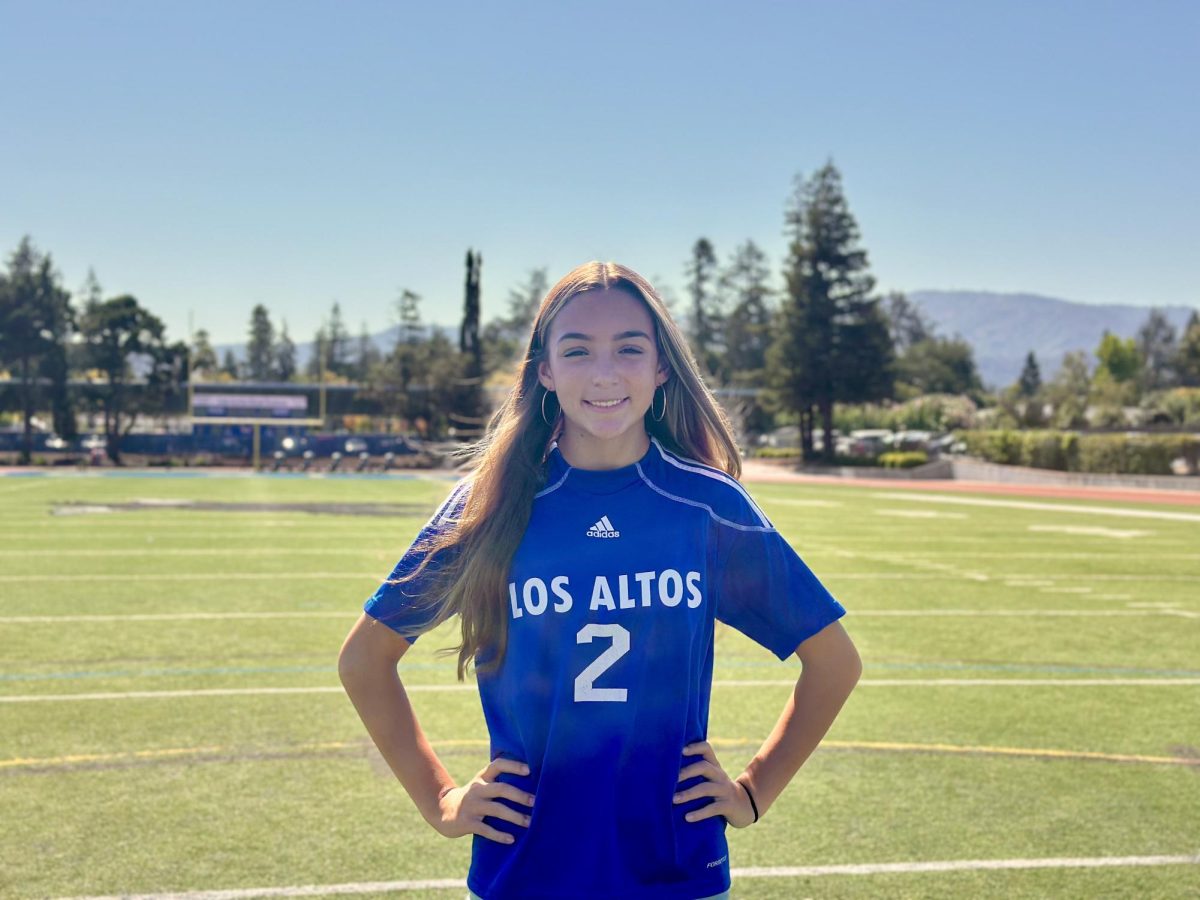
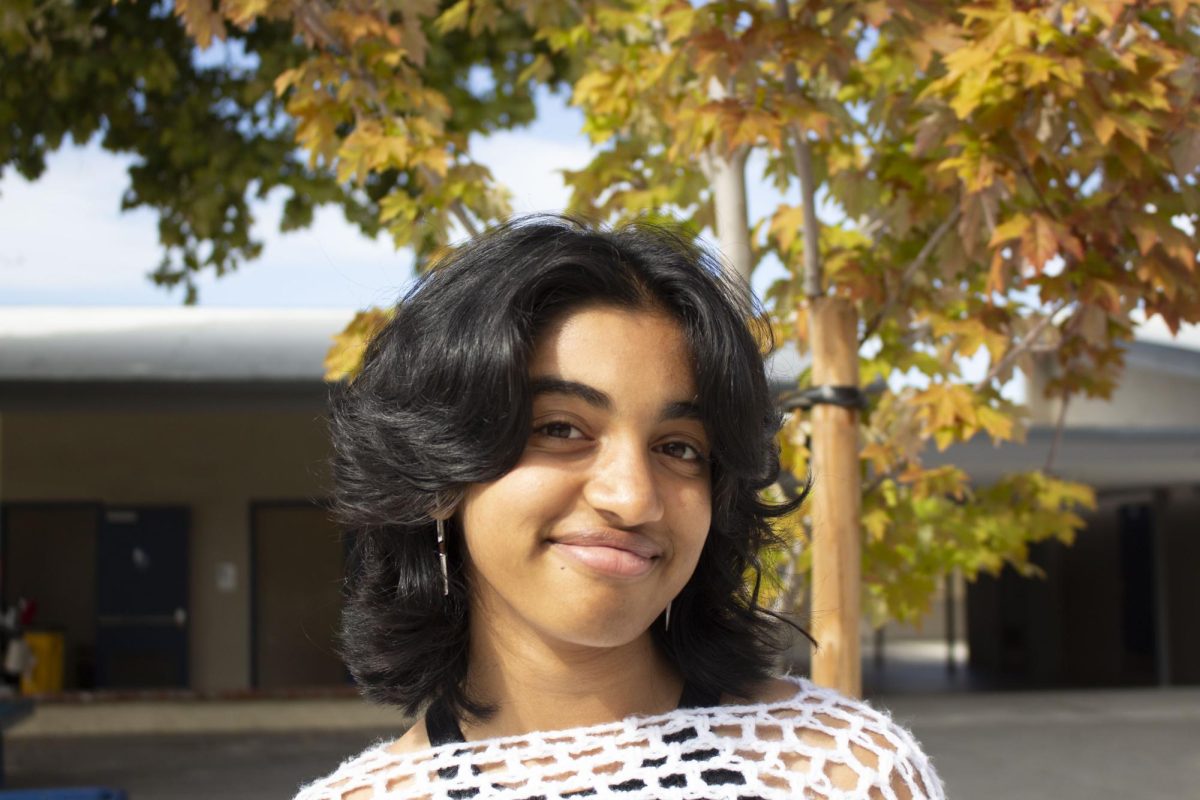


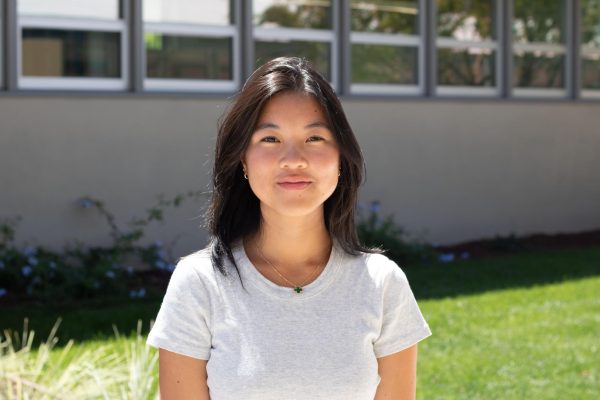
Alba Hernandez | Aug 28, 2025 at 2:25 pm
This is so inspiring. I wish I had known this story sooner. It made an important impact in my life. I’m so proud of Mr. Arias’s accomplishments. Such an inspiration to all latinos and non latinos too.